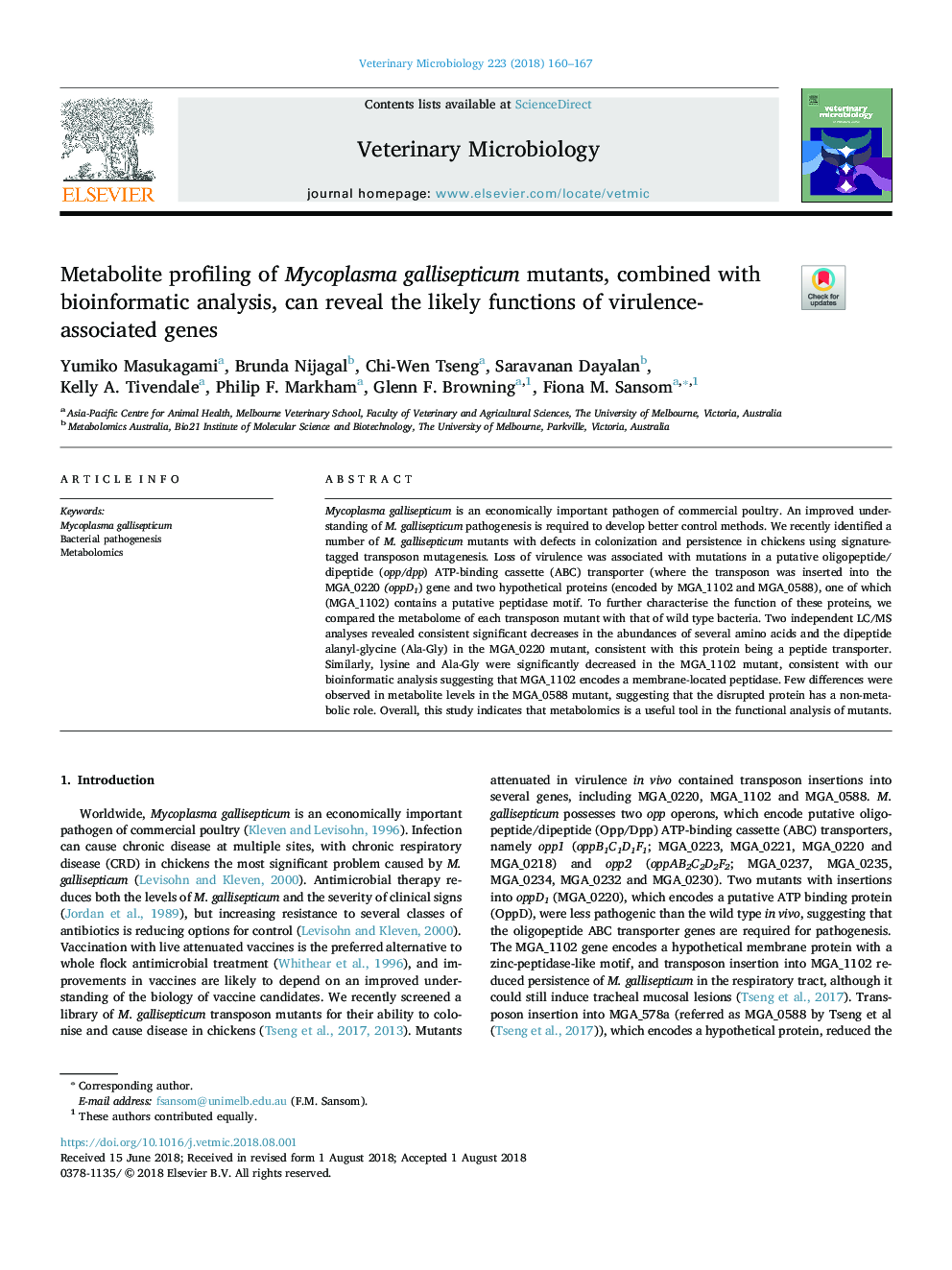| Article ID | Journal | Published Year | Pages | File Type |
|---|---|---|---|---|
| 8505104 | Veterinary Microbiology | 2018 | 8 Pages |
Abstract
Mycoplasma gallisepticum is an economically important pathogen of commercial poultry. An improved understanding of M. gallisepticum pathogenesis is required to develop better control methods. We recently identified a number of M. gallisepticum mutants with defects in colonization and persistence in chickens using signature-tagged transposon mutagenesis. Loss of virulence was associated with mutations in a putative oligopeptide/dipeptide (opp/dpp) ATP-binding cassette (ABC) transporter (where the transposon was inserted into the MGA_0220 (oppD1) gene and two hypothetical proteins (encoded by MGA_1102 and MGA_0588), one of which (MGA_1102) contains a putative peptidase motif. To further characterise the function of these proteins, we compared the metabolome of each transposon mutant with that of wild type bacteria. Two independent LC/MS analyses revealed consistent significant decreases in the abundances of several amino acids and the dipeptide alanyl-glycine (Ala-Gly) in the MGA_0220 mutant, consistent with this protein being a peptide transporter. Similarly, lysine and Ala-Gly were significantly decreased in the MGA_1102 mutant, consistent with our bioinformatic analysis suggesting that MGA_1102 encodes a membrane-located peptidase. Few differences were observed in metabolite levels in the MGA_0588 mutant, suggesting that the disrupted protein has a non-metabolic role. Overall, this study indicates that metabolomics is a useful tool in the functional analysis of mutants.
Related Topics
Life Sciences
Agricultural and Biological Sciences
Animal Science and Zoology
Authors
Yumiko Masukagami, Brunda Nijagal, Chi-Wen Tseng, Saravanan Dayalan, Kelly A. Tivendale, Philip F. Markham, Glenn F. Browning, Fiona M. Sansom,
